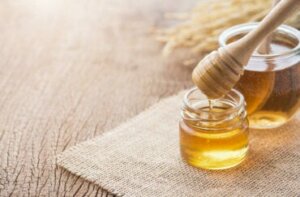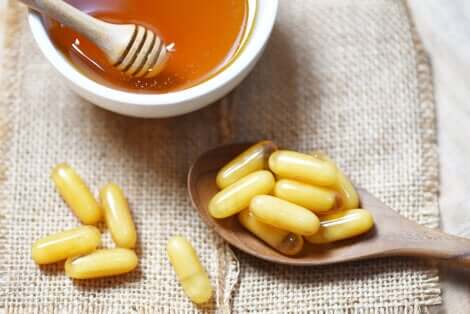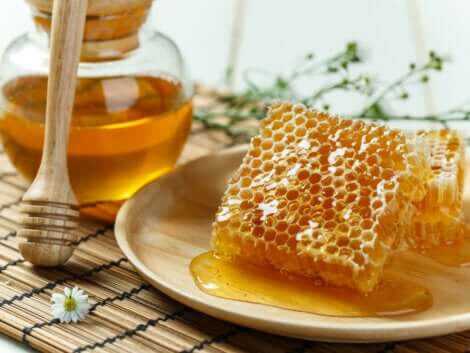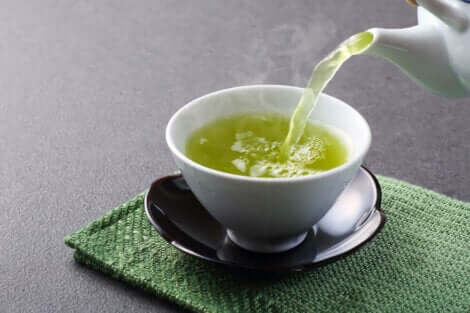7 Foods to Boost Your Immune System

Maybe strengthening your immune system only crosses your mind in the winter. However, you need a strong, healthy immune system all year round. Along with staying away from stress and sleeping better, what you eat plays an important role.
As a study published in The American Journal of Clinical Nutrition states, nutrition is critical to immune responses, while malnutrition and obesity reduce immunity. In this article, we’ll tell you about the foods you should add to your diet to keep your immune system in top shape.
Food and your immune system
The food you eat has a big impact on your immune system, for better or for worse. If you eat a diet that’s too high in refined flour, fat, and sugar, your body’s defenses are probably weak, allowing viruses and bacteria in.
On the other hand, if you eat healthy foods like in-season fruit or vegetables, your body will be preparing itself to fight illness-producing microorganisms. Besides controlling your weight, eating less fat will make your immune system function better.

According to information published in the European Journal of Clinical Nutrition, some of the essential nutrients to boost defenses are:
- Zinc
- Iron
- Selenium
- Riboflavin
- Vitamin C
- Vitamin E
- Folic acid
- Vitamin B6
- B12 vitamin
- Fatty acids
- Vitamin A or beta carotene
Do you want to know more? Read: Aging of the Immune System and How to Fight It
What foods should I eat to boost my immune system?
Eating well is good for you for many reasons, but especially if you want to avoid getting sick. A balanced diet gives your body the vitamins and minerals it needs to fight cellular aging and free radicals.
At the beginning of every season, you should get ready and take the necessary steps to strengthen your defenses and not get sick. Below, we tell you about the foods you should include in your diet.
Royal jelly for your immune system

Royal jelly is the food that only the queen bee eats in the honeycomb, hence its name. It contains many vitamins, especially A, B, C, and E. It’s also rich in copper, iron, phosphorus, selenium, unsaturated fatty acids, and calcium.
In a study published in Food Science & Nutrition, royal jelly showed positive immunomodulatory effects. It specifically helps to induce an effective immune response of the intestinal mucosa.
- Eat a teaspoon every morning on an empty stomach.
- It helps prevent infections and is recommended for children and the elderly.
Ginger
Your grandmother has probably told you to drink ginger tea to help with the symptoms of the flu or nasal congestion. She wasn’t wrong!
This root is often used in Asian gastronomy, and it’s very good for you. This is why ginger has been a part of natural medicine for centuries and is recommended to boost the immune system.
According to the journal Herbal Medicine: Biomolecular and Clinical Aspects, ginger fights infections and improves cellular health due to its antioxidants and anti-inflammatory effects.
To reap the benefits of this root, you can sprinkle it in your meals or make a ginger infusion.
Ingredients
- 1 cup of water (250 ml)
- 1/2 teaspoon of grated ginger (2 g)
- 1 tablespoon of honey (25 g)
Preparation
- Heat the water. Once it boils, add the ginger.
- Let boil for five minutes, remove from heat, and cover.
- Finally, filter and sweeten with honey. Drink as hot as possible.
Propolis for the immune system

Propolis is a food that’s very high in amino acids, vitamins, essential oils, and bioflavonoids. Although more evidence is needed, a recent study published in the Journal of Family & Community Medicine found that this ingredient, alone or combined with others, can improve immune response and induces immunomodulation.
- Propolis is recommended in cases of frequent respiratory conditions or when your defenses are low due to a certain situation (it can be a family problem, a lot of stress, depression, etc.) and you’re more vulnerable to getting sick.
Yogurt
Yogurt contains different “good bacteria” in charge of regulating intestinal flora while also protecting your immune system. According to a study published in Current Opinions in Gastroenterology, this and other probiotics have shown beneficial effects in the prevention of various diseases.
- Along with yogurt, we recommend having kefir or other fermented foods.
Green tea

The most common tea in Asia offers your body potent antioxidants called polyphenols. They have the ability to boost your immune system, according to a 2018 study.
- To make it tastier and boost its properties, you can add a tablespoon of honey.
We just told you about several foods that have shown beneficial effects on immune system functioning. Therefore, you should eat them regularly, especially in those times when people catch diseases. However, you must bear in mind that they don’t work on their own and that you must complement them with good habits and a balanced diet.
All cited sources were thoroughly reviewed by our team to ensure their quality, reliability, currency, and validity. The bibliography of this article was considered reliable and of academic or scientific accuracy.
- Chandra, R. K. (1997). Nutrition and the immune system: An introduction. American Journal of Clinical Nutrition. American Society for Nutrition. https://doi.org/10.1093/ajcn/66.2.460S
- Marcos, A., Nova, E., & Montero, A. (2003). Changes in the immune system are conditioned by nutrition. European Journal of Clinical Nutrition, 57, S66–S69. https://doi.org/10.1038/sj.ejcn.1601819
- Kai H, Motomura Y, Saito S, et al. Royal jelly enhances antigen-specific mucosal IgA response. Food Sci Nutr. 2013;1(3):222–227. Published 2013 Mar 6. doi:10.1002/fsn3.29
- Bode AM, Dong Z. The Amazing and Mighty Ginger. In: Benzie IFF, Wachtel-Galor S, editors. Herbal Medicine: Biomolecular and Clinical Aspects. 2nd edition. Boca Raton (FL): CRC Press/Taylor & Francis; 2011. Chapter 7. Available from: https://www.ncbi.nlm.nih.gov/books/NBK92775/
- Al-Hariri M. Immune’s-boosting agent: Immunomodulation potentials of propolis. J Family Community Med. 2019;26(1):57–60. doi:10.4103/jfcm.JFCM_46_18
- Yan F, Polk DB. Probiotics and immune health. Curr Opin Gastroenterol. 2011;27(6):496–501. doi:10.1097/MOG.0b013e32834baa4d
- Rahayu RP, Prasetyo RA, Purwanto DA, Kresnoadi U, Iskandar RPD, Rubianto M. The immunomodulatory effect of green tea (Camellia sinensis) leaves extract on immunocompromised Wistar rats infected by Candida albicans. Vet World. 2018;11(6):765–770. doi:10.14202/vetworld.2018.765-770
This text is provided for informational purposes only and does not replace consultation with a professional. If in doubt, consult your specialist.








